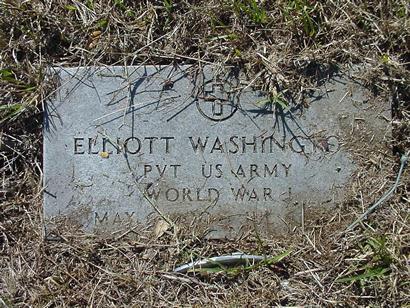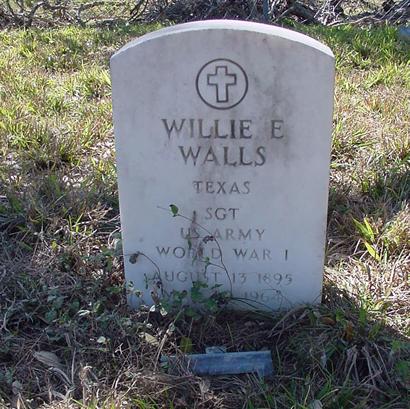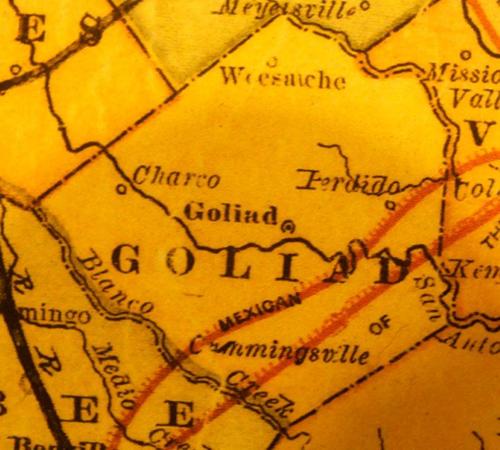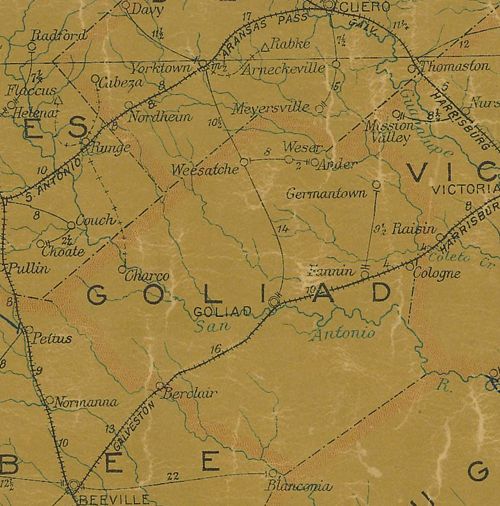Cologne, Texas, Goliad County ghost town. (original) (raw)
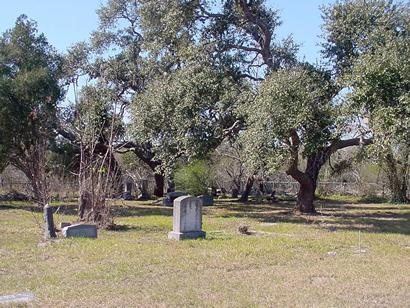
Cologne Cemetery on the north side of Hwy 59 on a dirt road.
TE Photo, February 2006
History in a Pecan Shell
Cologne would seem to fit in with many towns (Oldenburg, New Berlin and Westphalia) settled by German immigrants and named after cities back in the old country. But in this case the town was facetiously named for the stench of slaughterhouses that formed the economic core of the community.
Former slaves Jim Smith and George Washingtonare credited with founding the town. Smith and Washington were freighters operating out of the lost port of Indianola. They bought 500 acres here at Perdido Creek and by 1870, families began arriving. First called "The Colony" and then Perdido, the name was changed yet again to Centerville when resident Jim Hall called attention to the fact that "Perdido" was equidistant from Goliad and Victoria.
Founders were adamant about the community being for freemen and for years white settlers were excluded. The Gulf, Western Texas and Pacific Railway arrived in 1889 and the village became a stop known as "Ira Station." Jim Hall donated land to the railroad to construct the depot. In exchange he asked for a lifetime position as station manager. More importantly, Hall demanded that the railroad keep the community as a stop.
The town developed as a shipping point and later a slaughterhouse and hog rendering plant was built. The stench of these businesses could be smelled in Goliad or Victoria (depending on wind direction) so when it became time for a post office to be opened, William Young light-heartedly submitted the application for Cologne. The humor may have been lost on the postal authorities, but to the delight of residents, the name was granted. In 1898 the town that had been known as The Colony, Perdido, Centerville, and Ira Station became Cologne, Texas. (See vintage maps below)
Methodists and Baptists had congregations in the community as early as the 1880s, but both lost their churches during the 1930s. The Methodists rebuilt their church while Baptists started attending services in nearby Fannin.
By 1914 Cologne had only 35 residents and the post office closed in 1925. It dropped to its record low of 25 people by 1940. From 1970 through 1986 it had rebounded to 35, but the depot, cattle pens and railroad were all gone by this time.
In an all-but-forgotten historical footnote - John F. Kennedy once mentioned Cologne, Texas. The occasion was a speech at Cologne, Germany in 1963. Kennedy began by saying "I bring you greetings from the cities of America, including Cologne, Minnesota, Cologne, New Jersey, and even Cologne, Texas."
The town cemetery is on the north side of highway 59 on a dirt road.
Founders Smith and Washington are buried in the far northwest corner and the Washington family is well represented by many headstones.
The largest tombstone in the cemetery is for the Young Family - the plot belonging to the man who gave the town its fragrant name.
In 1990 the population was estimated to be 85 but based on the vacant houses, it appears to be less.
(See also Historical Marker )
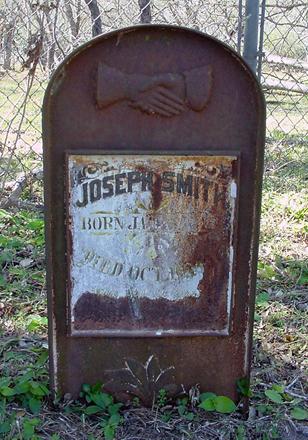
Tombstone of Joseph Smith
TE Photo, February 2006
Historical Marker (in Cologne Cemetery on Lott Road):
Cologne Community
Former slaves established the community of Cologne in an effort to provide safety and refuge from the general lawlessness and violence committed -- particularly against African Americans -- during the post-Civil War Reconstruction era.
Freedmen Joseph Smith and George Washington had opened a freight and passenger business in Victoria after the Civil War. Their business was a success and they were able to live in relative prosperity in Victoria, along with other African American families. As Reconstruction ended and Texas Democrats regained control of local and state government, the prosperity and security gained by emancipated slaves was threatened. In 1877, Washington and Smith purchased more than five hundred acres on Perdido Creek between Victoria and Goliad. They sold portions of this land to other African Americans, and still others purchased adjacent property. A cemetery, churches and a one-room school were soon built, and a post office opened in 1898.
The community was first known simply as "The Colony" but was later known as Perdido, Centerville and Ira Station. The name "Cologne" may have derived from the wishful thinking of residents who wanted to distract from the scent of the local rendering plant.
Initially, the community's economy was based largely on agriculture, but the arrival of the Gulf, Western Texas and Pacific Railroad in 1889 allowed shipping to become a major commercial activity. Unusual for the time was an integrated depot built in the 1890s. As with many rural communities, two world wars, the Depression and urbanization caused the gradual decline of Cologne.
(2008)
Tombstone of Elnott Washington, PVT US Army, World War I
TE Photo, February 2006
Tombstone of Willie E. Walls, SGT US Army, World War I
TE Photo, February 2006
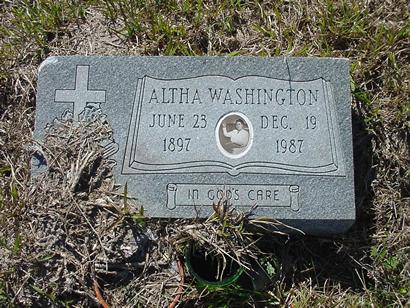
Tombstone of Altha Washington
TE Photo, February 2006
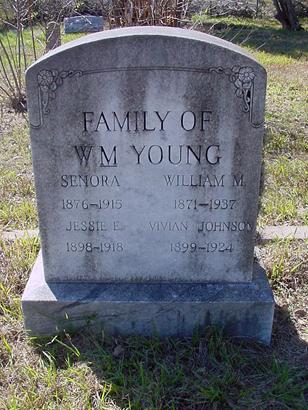
WM Young Family Tombstone
TE Photo, February 2006
Goliad County 1858 Map showing Perdido and Perdido Creek
Courtesy Texas General Land Office
Goliad County 1907 Postal Map showing Cologne
(Near Victoria County line)
Courtesy Texas General Land Office
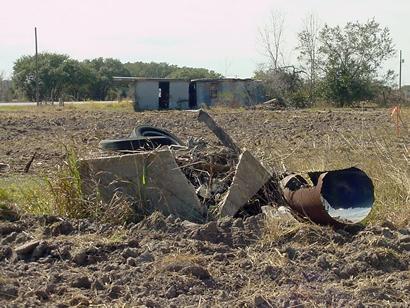
Sims Tire Shop
TE Photo, February 2006
According to newly installed signs along highway 59 this section of highway will be expanded to form Interstate 69. In February of 2006, work is already underway. Trees have already been cut and removed. Several houses and at least one defunct business will soon be bulldozed.
Texas Escapes, in its purpose to preserve historic, endangered and vanishing Texas, asks that anyone wishing to share their local history, stories, landmarks and recent or vintage photos, please contact us.
